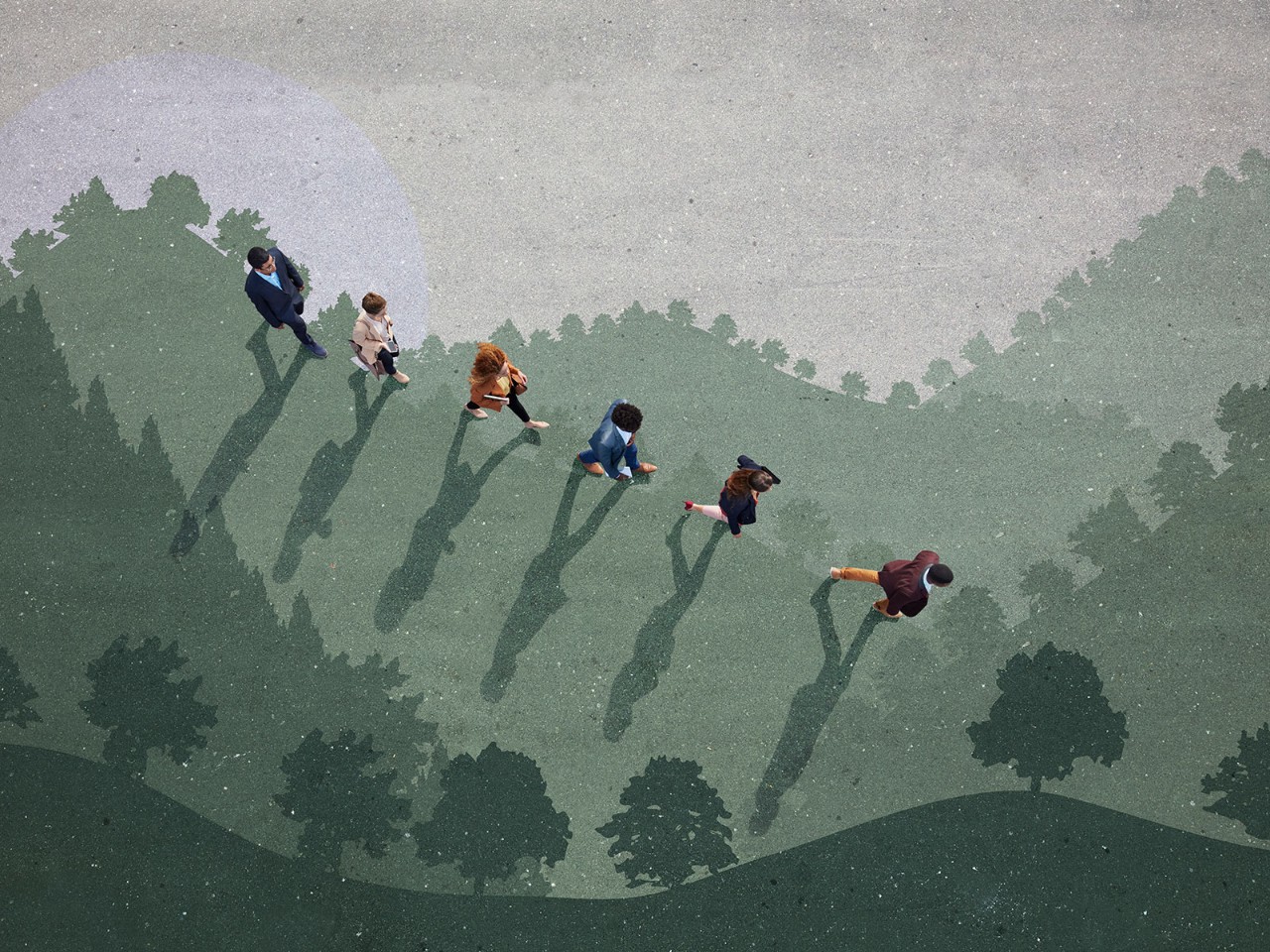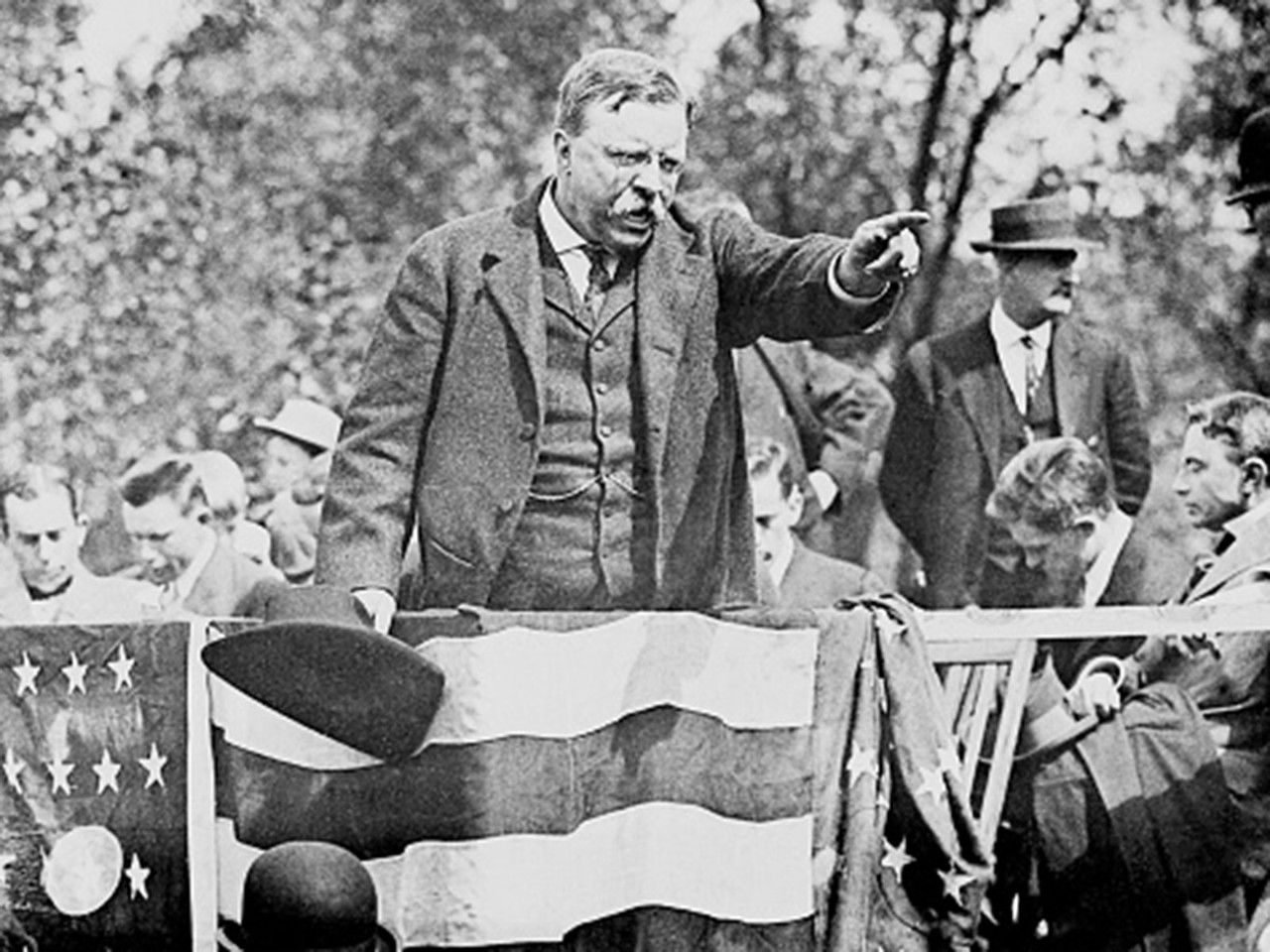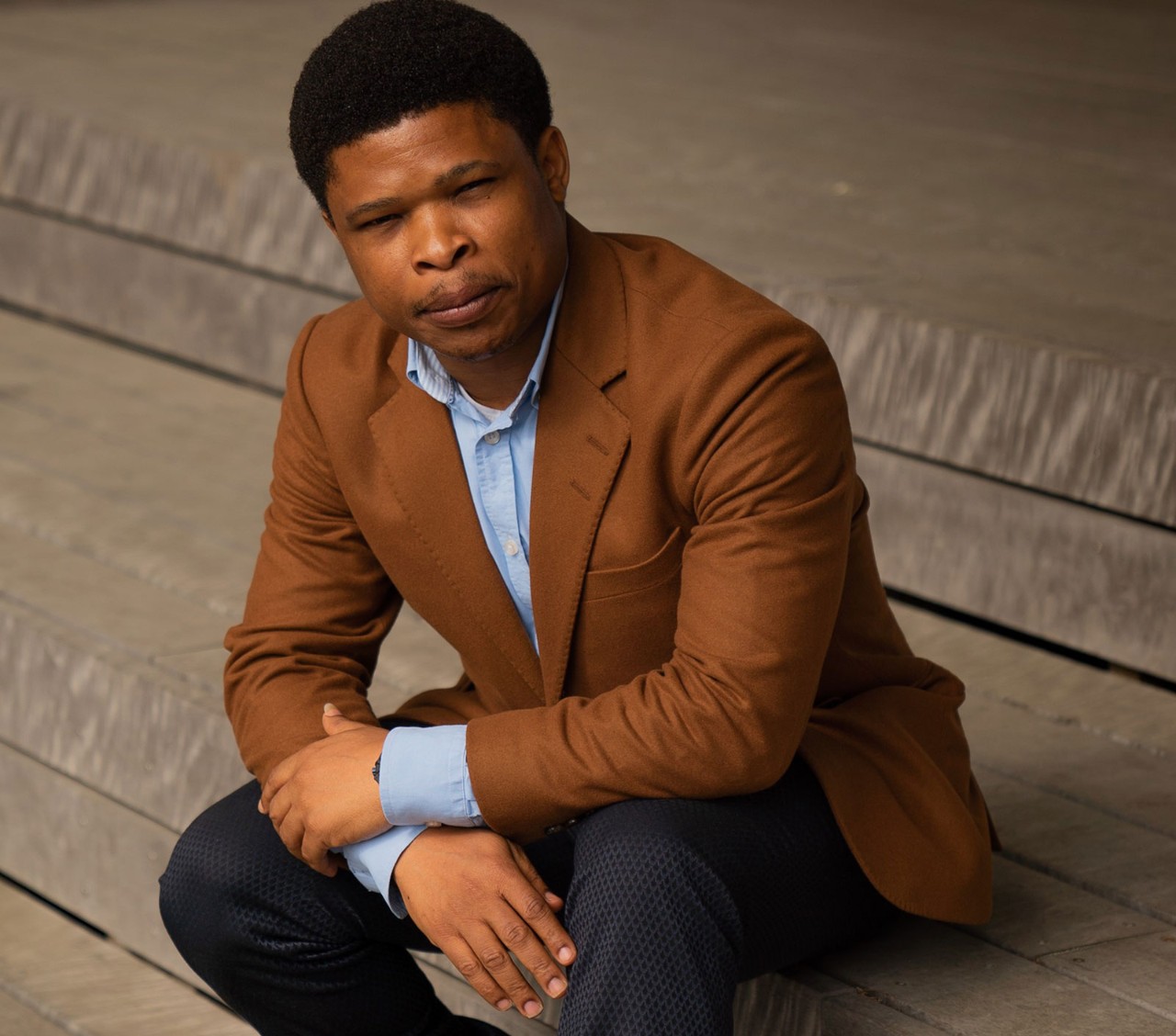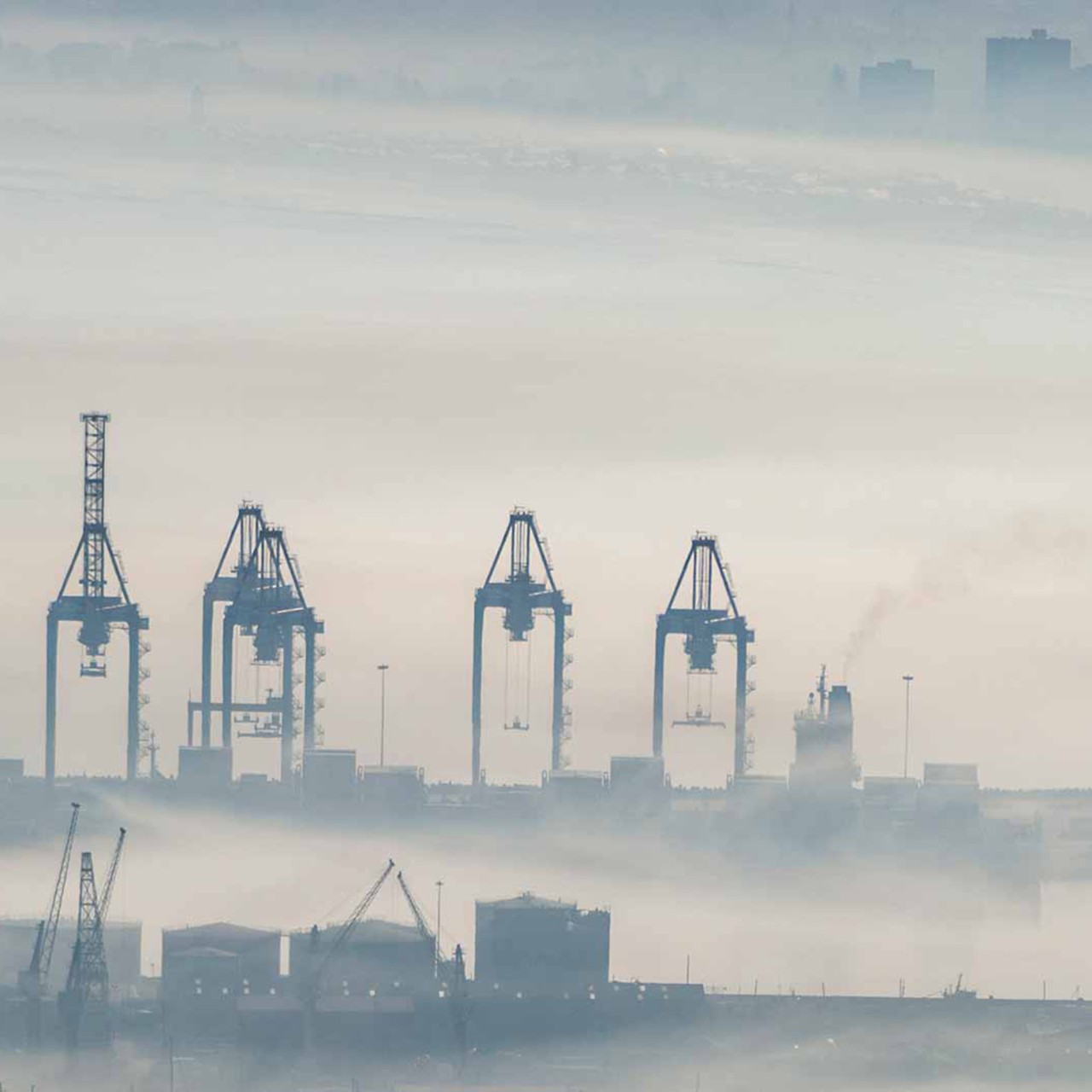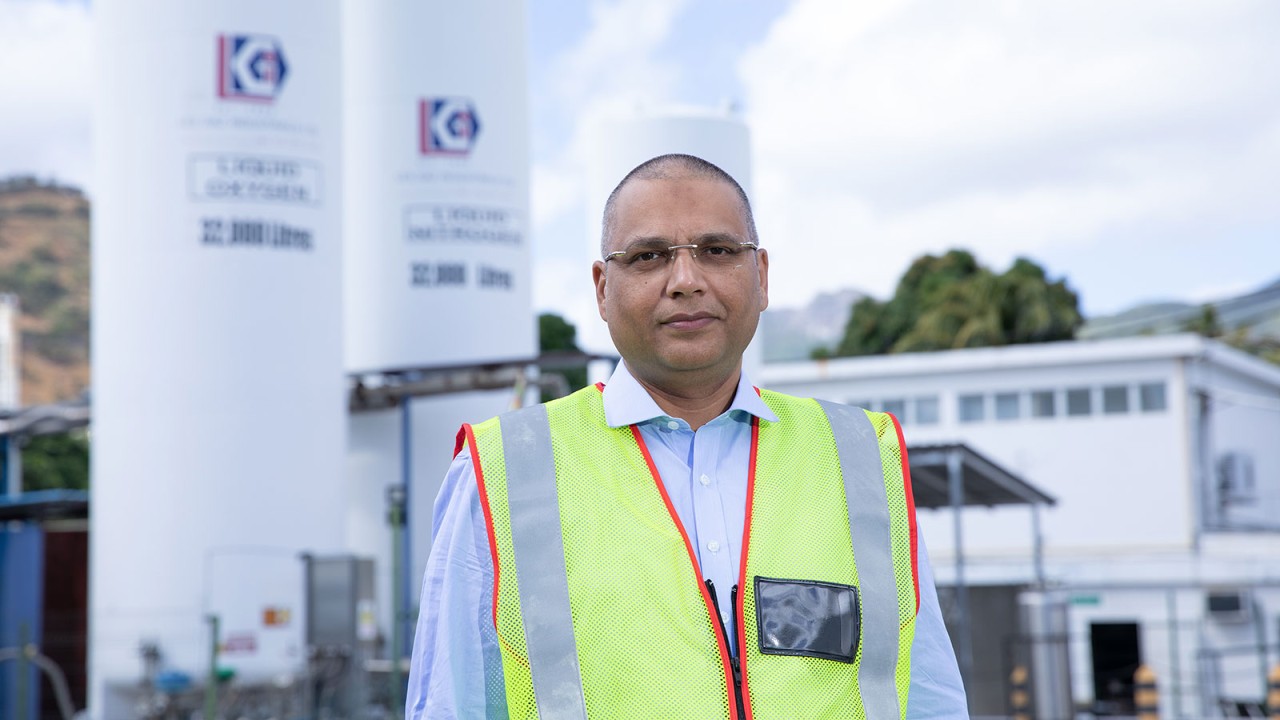
In March and April 2021, while the world watched terrible images from India as it struggled to cope with a huge new wave of Covid-19 infections, a similar tragedy was unfolding on a smaller scale in Madagascar, almost unnoticed by the international community. Hospitals were quickly overwhelmed, demand for oxygen soared well beyond the island’s capacity, and a national state of emergency was declared. Desperate for help, the government turned to industrial and medical gas producers on the island. One of them was Les Gaz Industriels (LGI), which has a small subsidiary in Madagascar.
‘Typically we produce 20 to 40 cylinders of oxygen a day in Madagascar, but we immediately recruited more people and opened up 24 hours a day, seven days a week, to produce 250 cylinders a day,’ says Salim Hatteea FCCA, finance manager at LGI in Mauritius. ‘The demand was even higher than that – we had people queuing up at night at our depot – but we did what we could.’
Opportunity v human cost
For both Hatteea and LGI, the experience was transformative. ‘We may only be a minnow in global terms, but our product was critical to people's survival. If we took a day off, people would die. Normally, shareholders are completely focused on the bottom line, and if we see an opportunity and fail to take it, there is an impact in terms of opportunity cost. But in March and April, the cost was human. And we are humans first.’
Les Gaz Industriels in numbers
Rs121.71m
Revenue (US$2.9m) to 30 June 2020
Rs1.99m
Pre-tax loss (US$47,760)
Rs101.3m
Market capitalisation (US$2.4m)
55
Number of employees
‘Our product was critical to people's survival. If we took a day off, people would die'
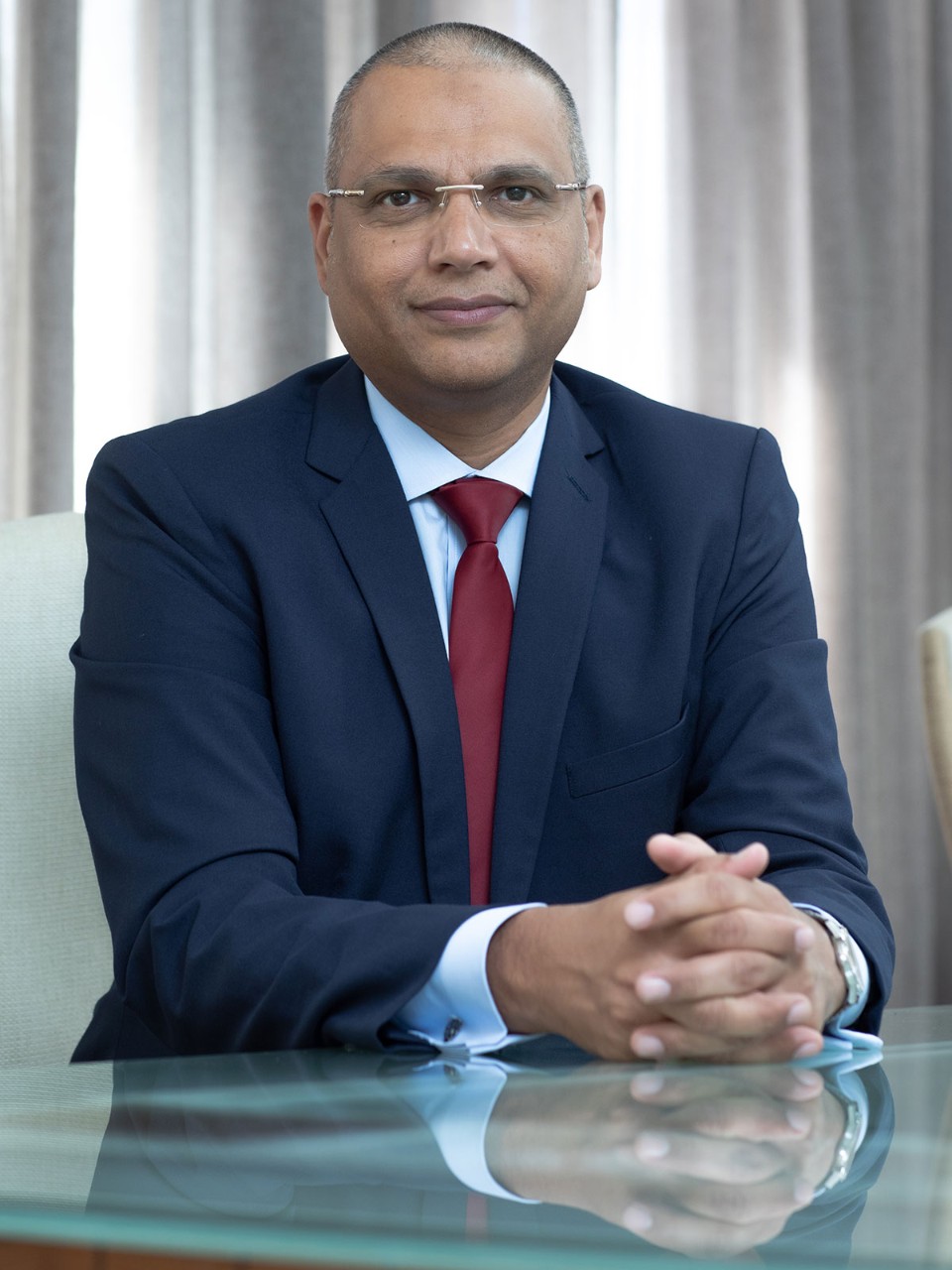
CV
2015–present
Finance manager, Les Gaz Industriels
2012
Head of treasury and internal control, Iframac (car dealership), Mauritius
2011
CFO, Apollo Bramwell Hospital, Mauritius
2005
CFO, Marcom (advertising agency), Mauritius
1999
Audit senior, Halperns, London, UK, then BDO De Chazal du Mée, Mauritius
1998
Trainee accountant, Oosman & Co., London, UK
That LGI was in a position to help Madagascar through the crisis was, to a large extent, the result of decisions made by the company in the last five years. LGI was founded in Mauritius in 1952 and manufactures medical and industrial oxygen and acetylene on the island, as well as importing helium, hydrogen and other gases for medical and industrial use. Until 2016, LGI was also exporting oxygen to Madagascar and distributing the cylinders through its subsidiary there.
‘The business model wasn’t working well,’ Hatteea says. ‘We were filling cylinders with oxygen here in Mauritius, and then shipping them over to Madagascar. The costs were very high and margins low. So we decided to set up a liquid oxygen tank facility in Madagascar so the cylinders could be filled directly on site. The business was just beginning to pick up at the start of the pandemic. It wasn’t quite profitable, but it was getting there.’
Competition and collaboration
When the pandemic struck, LGI could supply oxygen but did not have enough cylinders to meet the extra demand – the business sells gas in its own reusable cylinders, which are tracked by software to maximise efficiency. It therefore worked with its close competitors in Mauritius and Madagascar, who supplied the cylinders needed to distribute oxygen to hospitals. Over the previous few years, these same competitors had put LGI’s business under such pressure that, by 2018 it had launched a significant diversification programme to secure its long-term survival. ‘The local market is very difficult, very competitive. We have been fighting each other on a daily basis,’ is how Hatteea puts it.
LGI’s main business had traditionally relied on government contracts to supply medical oxygen and air to hospitals on Mauritius. ‘It was a huge revenue for us, our main revenue until very recently,’ Hatteea says.
In recent years, though, new entrants to the market began to put LGI under pressure. ‘We are affiliated to the chemicals multinational Linde, and health and safety is critical to the group, it is uncompromising,’ Hatteea says. ‘We started losing government contracts on the basis of price in 2017, so we had to start reinventing ourselves.’
Clearly, these have been unusual and testing times for LGI. Looking ahead, the future is of course largely unknown, but lessons have been learned. ‘We just don’t know how things will evolve, but we have shown that we can react quickly and adapt when we need to,’ Hatteea says.
For now, though, he believes everyone involved in LGI should be gratified by what it has achieved. ‘We will tell our shareholders in our next annual report that besides creating revenue and getting back into profit, we have saved lives. They can be proud of that.’
